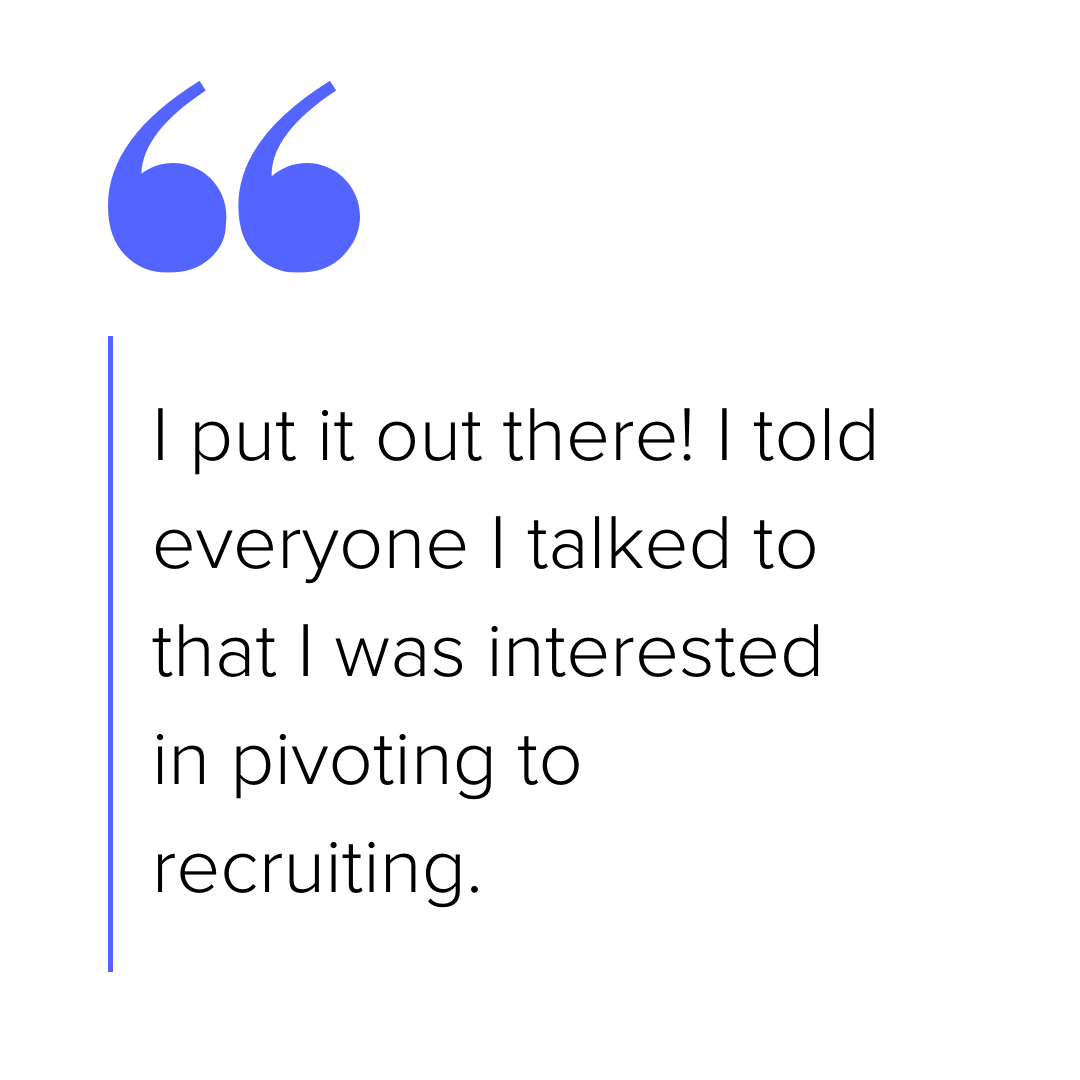It seems career journeys are rarely linear these days. On average, a person will hold at least 12 jobs in their lifetime. A 2021 Harris Poll showed that 52% of U.S. workers considered a job change last year alone. As many as 44% made actual plans to take the leap.
But it’s more than just changing employers.
Today, it’s more common than ever before to switch careers altogether. Some studies estimate that nearly one-third of people have completely changed career fields since their first post-college job.
Yet, for many, making career changes are easier said than done. It can feel a lot like standing on the edge of a cliff and not being able to see what lies below. Is it a fulfilling career that provides purpose, growth, and stability? Or is it another dead end that will leave you feeling burnt out and stagnant?
If you’re thinking of taking the leap into a new career, some of the most reassuring voices can be the ones who have been in your shoes. That’s why JobSage has set out to share the stories of people who have gone through their own inspiring career changes.
In the first edition of this series, JobSage interviewed Melissa Liscano, who shared her journey from event management to technical recruiting.
Where it began: Event management

Before her career as a technical recruiter, Melissa Liscano worked in the event management space. What began as coordinating happy hour events and private dinners at a popular restaurant in town turned into a six-year career that led her to corporate marketing events and ultimately sales events.
For Liscano, there were several aspects of the field that she really enjoyed.
“I loved how people-facing and social my role was, and I really enjoyed the logistical complexity of organizing big conferences and then seeing it all come together after months of hard work,” she explains. “I also loved all the travel!”
But as life brought changes, her priorities shifted.
“I became a mom and realized the travel was going to be difficult.” On top of that, the time commitment was becoming exhausting. “The weeks leading up to a major event can be brutal. It’s long hours, and then the event itself can truly wipe you out. Executing the events themselves was pretty draining for me.”
The COVID-19 pandemic was a major turning point. Liscano noted that during the pandemic, events became virtual and took many of the enjoyable aspects away from the job.
The pandemic also led to her getting laid off— which turned out to be a good thing. “I’m not sure if I would have had the courage to make the pivot without being laid off, so I’m truly thankful that it happened.”
Choosing a new career path
After getting laid off, Liscano had an opportunity to reassess what she wanted to do with her career. Her gut told her that recruiting was the right path, and she got to work.
She worked hard to figure out how her experiences in event management could translate into success as a recruiter. She determined the skillset overlap between the two careers and wrote it out. “Thinking through these things and getting them on paper helped me market myself,” she explains.
The most important thing that she did, however, to gear up for the change was to network with others.
“I put it out there!” she says. “I told everyone I talked to that I was interested in pivoting to recruiting. I sent out LinkedIn messages and eagerly accepted a Zoom chat with anyone who was willing to talk to me about their experience as a recruiter, and I ended each of those conversations by asking if there was anyone they’d be willing to connect me with to continue to learn more about the industry and opportunities within it.”

She learned how helpful peers could be— especially if the conversations were approached with humility and a growth mindset.
Carving a career in recruiting
It wasn’t long before Liscano landed her first job as a Technical Recruiter. She’s happier and more confident in her professional life than ever before— and she didn’t have to take a pay cut, either. But, that doesn’t mean that her new position wasn’t met without challenges.
“It can be challenging to gain people’s immediate respect in this industry when they see you’ve been doing it for a year or less,” she says. “You have to work hard to prove yourself. Some candidates are less likely to respond to the outreach of a new recruiter versus someone who has been doing it for years.”
Still, she found that her experiences as an event manager prepared her for some of the hurdles of her new job. For instance, her experience coordinating and interacting with C-level executives on a regular basis has made it easier for her to interview candidates that are senior to her.
If she had to do anything differently, she says she could have done a little more research and explored different avenues based on her skills and interests.
“Honestly, I didn’t investigate a lot of other career options much because my gut told me recruiting was where I wanted to go. Luckily, I think my gut was right— I love my new career and I wholeheartedly feel it’s where I’m supposed to be right now.”
Advice for others considering a career change
If Melissa Liscano had to pass one piece of advice on to others considering a career change, it would be the importance of networking and building relationships. However, she also had a few other helpful tips to share:
- Know that you may need to take a step back in compensation when changing careers. Do research to try to get a sense of what you could expect to be making in your new career from the start. Then look at what your earning potential could look like a couple years down the road. Make sure it makes sense for you financially.
- Talk to folks in the new line of work you’re pursuing to learn what their challenges are and what they don’t like about their jobs so that you can have a realistic sense of the not-so-glamorous side of that work.
- Know how to market your skills and experience. Maybe your past seemingly-unrelated experience could bring some awesome new fresh perspective to your new company or career in ways the hiring manager hadn’t even considered.
- Practice interviewing and consider enlisting the help of resume services or interview/career coaches.
- Mentally prepare yourself for the challenges that may come. Seeking a new role, especially in a few fields, typically requires a good amount of determination and resilience. But hopefully it will be more than worth it in the end!
Liscano’s story teaches us that sometimes, all you need is a push and determination to get your new career off the ground. The push may come in a way that you least expect— like a layoff— but the important thing is where you go from there.
Stay tuned as JobSage shares more inspiring career changes!
